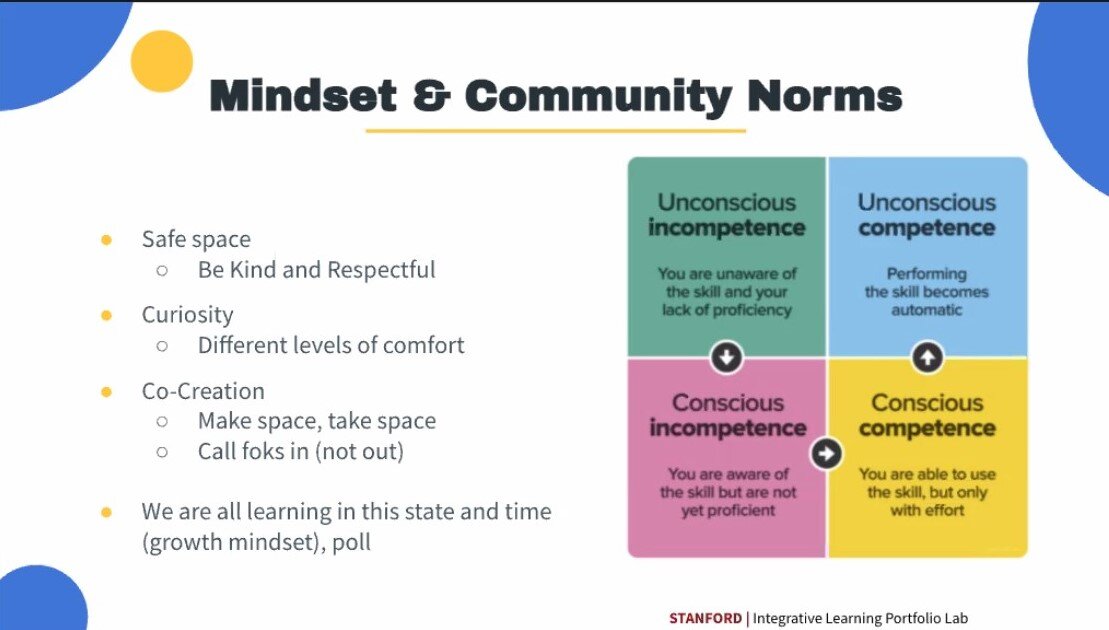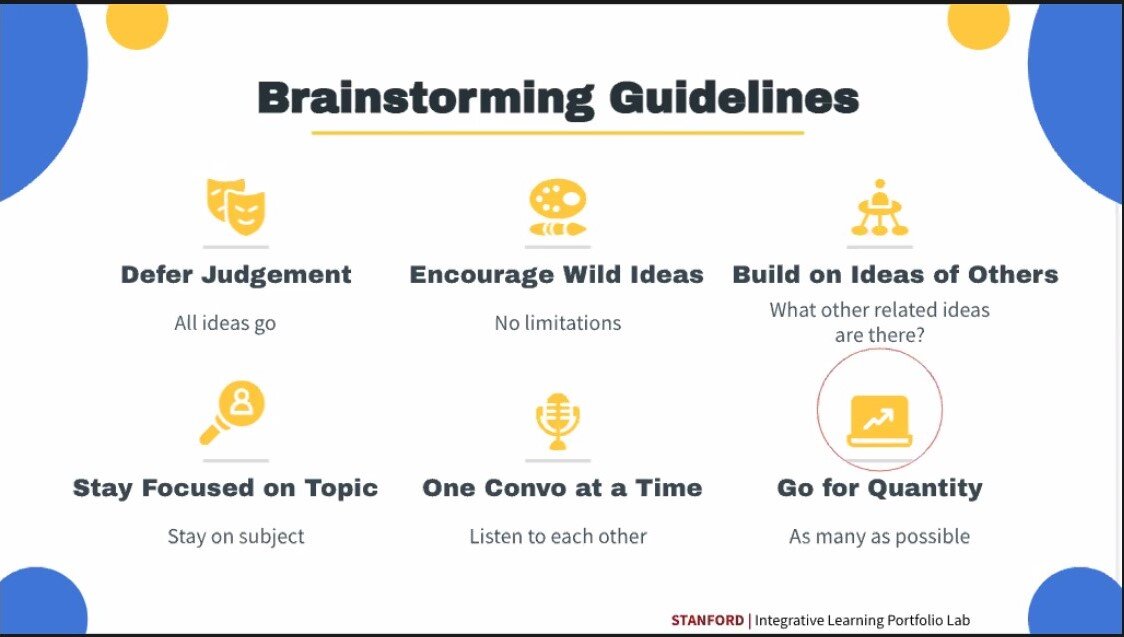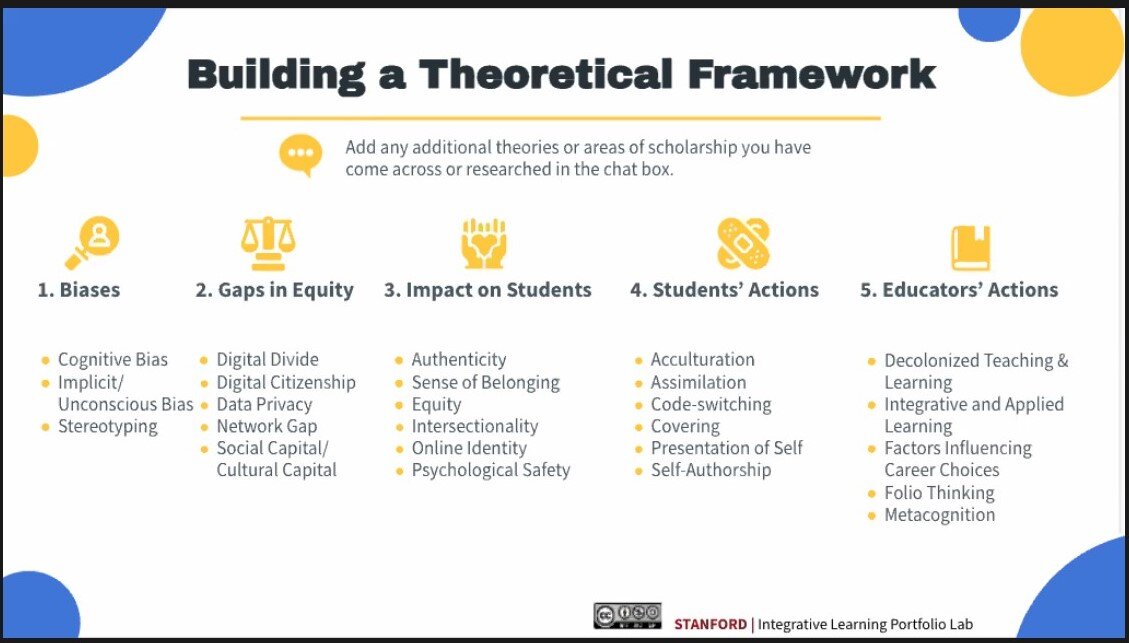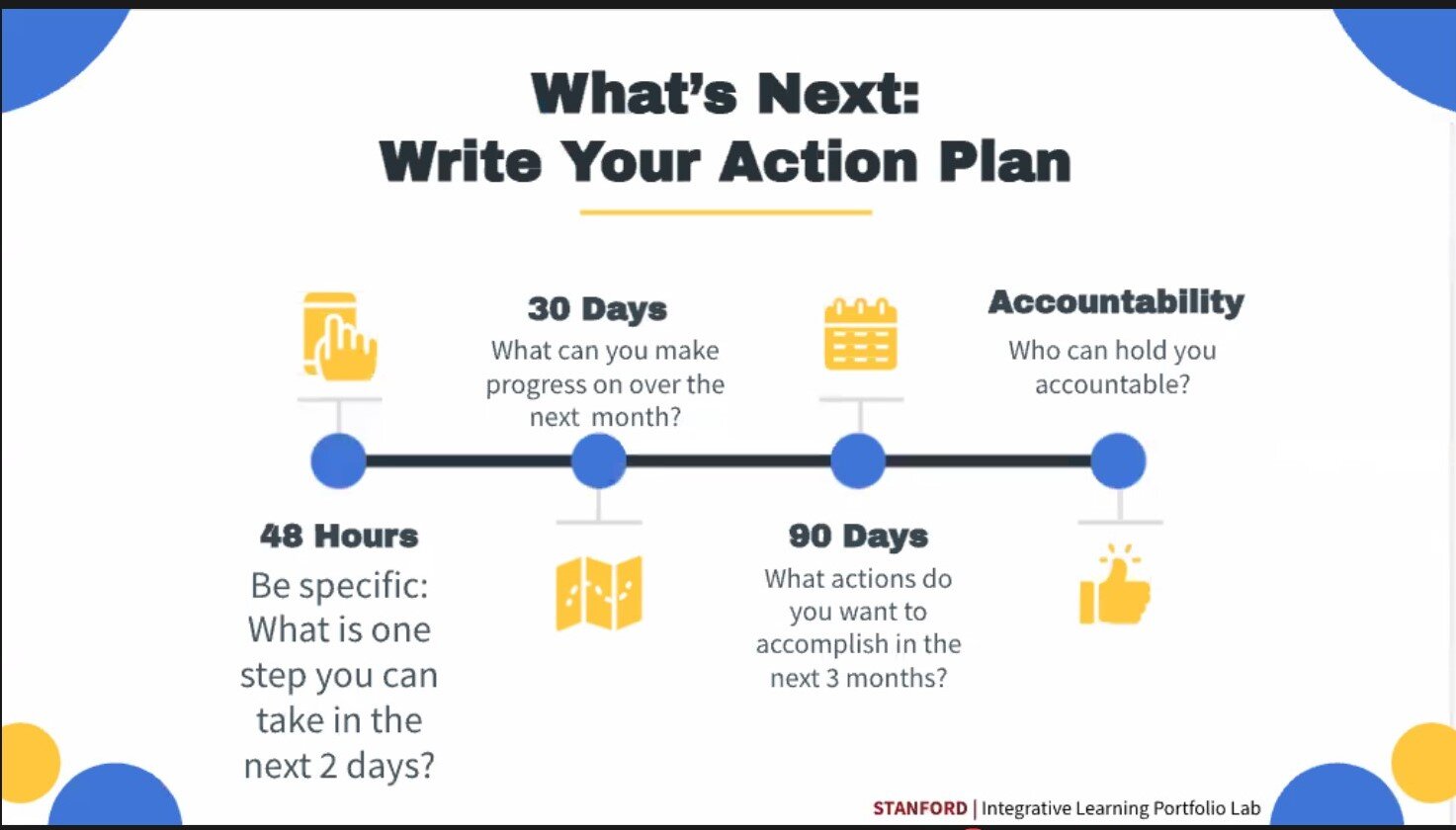Stanford ILPL: “Students, Online Presence, and DEIB”
On May 25, 2021, I attended the virtual workshop, “Students, Online Presence, and DEIB” presented by the Integrative Learning Portfolio Lab at Stanford University, and featuring Drs. Sheetal Patel and Helen Chen. The workshop was pragmatic, highly interactive, and quite productive.
I was particularly amused to see a number of familiar ideas: the Design Thinking model from the slide above follows a similar trajectory as Theory U and the presenters created a culture through both “Community Norms” and “Brainstorming Guidelines” (slides to the right - click to advance). One of the guidelines was even “Defer Judgment,” which echoed the “Suspend Judgment” of my own Class Culture tenets. it appears that I’m on the right track, anyway.
Also included in the slide gallery are two particularly interesting concepts: the definition of the theoretical framework, and the action plan. The former defined the principal components of the issue and correlated them with existing concepts in the literature, while the latter was a purely pragmatic “kick in the rear” that kept everything from getting too theoretical. Since I frequently get stuck in the implementation phase, this was a particularly welcome tool (although, as is so often the case, it’s frustrating that I needed someone else to point out something so conceptually straightforward).
We were asked to bring a specific DEIB problem to the workshop. Since I am a relative newcomer to portfolio pedagogy and HPU is a majority-white institution, my DEIB problems were not as visceral as those of my colleagues: the few affected students I’d had in the previous semester hadn’t been particularly concerned about their online identities. The one who had deliberately avoided including pictures of himself did so in order that potential clients would focus only on his work, and he had regarded it as a challenging, empowering gesture. It seemed to me that the bigger problem, and indeed the one that informs most of the new courses I develop, was exposing our more sheltered students to other ways of living in the world.
The brainstorming session was very productive and felt too short (always a good sign!). My breakout group was very supportive of my long-held desire to create a role-playing experience of life in poverty or the working class, and my 48-hour action item was to follow up with HPU colleagues who had participated in a “Reacting to the Past” initiative some years ago. While the actual RTTP site didn’t have much to help me specifically (like City-as-Text, actual RTTP experiences are immense and self-contained), I think I might be able to adapt some of the framework for my Fall HNR 1103 Working-Class Protest Culture… and I suppose I need to set a 30-day objective (for June 25) to get to the next step in the process.
Since I already have them making white working-class personas, it seemed logical to create the role-playing experience around those. Arlie Russell Hochschild’s book Strangers in their Own Land has several passages that could help to immerse the students into the white working class community as they prepare for the role-playing. I also did some quick research into local industry to get a sense of the issues the role-playing might address. The companies were pretty cagey about salaries (although I might be able to find a range in public records), but there were some nicely-produced videos that gave a sense of the work environment.
My challenge will be to come up with something that can provide the most authentic experience possible in an extremely short amount of time. Since it’s a team-taught course, and I only have the students for seven sessions, I would probably be able to devote only one 60-minute session to it. If I do this, my main goal will be to avoid slipping into the prevailing stereotypes. It might even be better to put it late enough in the unit that they will already have done some research into their social issues… which I’m also thinking of having them do in groups.
Well, I still have about three weeks. I’ll think about it.




